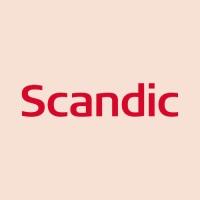
Four Seasons Hotels and Resorts Company Cyber Security Posture
fourseasons.comFour Seasons Hotels and Resorts opened its first hotel in 1961, and since that time has been dedicated to perfecting the travel experience through continual innovation and the highest standards of hospitality. Currently operating more than 120 hotels and resorts, and more than 50 residential properties in major city centers and resort destinations in 47 countries, and with more than 50 projects under planning or development, Four Seasons consistently ranks among the world's best hotels and most prestigious brands in reader polls, traveler reviews and industry awards. To learn more about our career opportunities, visit fourseasons.com/careers. For more information and reservations, visit fourseasons.com. For the latest news, visit press.fourseasons.com and follow @FourSeasonsPR on Twitter.
FSHR Company Details
four-seasons-hotels-and-resorts
36265 employees
1624429.0
721
Hospitality
fourseasons.com
Scan still pending
FOU_1498892
In-progress
Between 900 and 1000
This score is AI-generated and less favored by cyber insurers, who prefer the TPRM score.
 FSHR Global Score
FSHR Global Score.png)

Four Seasons Hotels and Resorts Company Scoring based on AI Models
| Model Name | Date | Description | Current Score Difference | Score |
|---|---|---|---|---|
| AVERAGE-Industry | 03-12-2025 | This score represents the average cybersecurity rating of companies already scanned within the same industry. It provides a benchmark to compare an individual company's security posture against its industry peers. | N/A | Between 900 and 1000 |
Four Seasons Hotels and Resorts Company Cyber Security News & History
| Entity | Type | Severity | Impact | Seen | Url ID | Details | View |
|---|---|---|---|---|---|---|---|
| Four Seasons Hotels Limited | Breach | 85 | 4 | 8/2016 | FOU711072725 | Link | |
Rankiteo Explanation : Attack with significant impact with customers data leaksDescription: The Washington State Office of the Attorney General reported a data breach involving Four Seasons Hotels Limited on July 6, 2017. The breach, which occurred due to unauthorized access by an unknown third party on August 10, 2016, affected the personal information of 636 Washington residents, including payment card and reservation information. | |||||||
Four Seasons Hotels and Resorts Company Subsidiaries

Four Seasons Hotels and Resorts opened its first hotel in 1961, and since that time has been dedicated to perfecting the travel experience through continual innovation and the highest standards of hospitality. Currently operating more than 120 hotels and resorts, and more than 50 residential properties in major city centers and resort destinations in 47 countries, and with more than 50 projects under planning or development, Four Seasons consistently ranks among the world's best hotels and most prestigious brands in reader polls, traveler reviews and industry awards. To learn more about our career opportunities, visit fourseasons.com/careers. For more information and reservations, visit fourseasons.com. For the latest news, visit press.fourseasons.com and follow @FourSeasonsPR on Twitter.
Access Data Using Our API

Get company history
.png)
FSHR Cyber Security News
Cybersecurity jobs available right now: January 21, 2025
As a Software Engineer – Cloud Security, you will develop and enhance modern cloud-based cybersecurity services across all layers, from database ...
How hospitality companies can stay ahead of cyberattacks this summer
Summer may bring a spike in cyberattacks, but the threat is nothing new. For years, the hospitality industry has been a prime target because of ...
Envisioning 2025 in travel and hospitality
As we approach 2025, the hospitality sector is gearing up for a tech-based transformation. Several key trends and developments are expected ...
Top 17 Cybersecurity Conferences in 2025
the top cybersecurity conferences of 2025 are more than just events — they're essential for learning cutting-edge strategies, networking with ...
Booking a hotel this holiday season? Beware of credit-card malware targeting hotels!
Tracks 1 and 2, which are stored in an unencrypted format, are cybercriminals' main focus. It is this unencrypted track data that thieves attempt to steal when ...
Egypt, Libya, Tunisia, Algeria, Morocco, Sudan, Western Sahara Experiencing Skyrocket Growth in Luxury Hotel Industry, What’s New in Latest Report
The latest 2024 hotel development pipeline report highlights a remarkable boom in the luxury hotel and hospitality industry across Egypt, ...
Four Seasons Hotels reveals hack
Four Seasons Hotels and Resorts has announced that it was recently informed by a third-party hotel reservations provider that there has been unauthorized ...
Four Seasons Yachts Unveils Inaugural Itineraries to the Caribbean and Mediterranean and a First Look at its 95 Spectacular Suites
Four Seasons Yachts will redefine luxury at sea with its all-suite, residential style product, best in class design and the brand's renowned ...
Leading lodging companies in the cybersecurity theme
Discover the leading lodgin companies in the cybersecurity theme and unlock the most comprehensive thematic research report from GlobalData.

FSHR Similar Companies

Carlson Hotels "Park Plaza, Chandigarh
A full-service, upper midscale hotel brand for business and leisure travelers, Park Plaza® offers award-winning meeting facilities and staff who live the brand’s value proposition by going out of their way to show their appreciation to their guests. Park Plaza® hotels are located in city centers

Playa Hotels & Resorts
Playa Hotels & Resorts N.V. (NASDAQ: PLYA, "Playa") is a leading owner, operator and developer of all-inclusive resorts in prime beachfront locations in Mexico, Jamaica and the Dominican Republic. Playa currently owns and/or manages a total portfolio consisting of 20+ resorts under the following bra

Scandic Hotels
Scandic is the largest hotel company in the Nordic countries with a network of about 280 hotels with 58,000 rooms in operation and under development, in more than 130 destinations. The company is the leader when it comes to integrating sustainability in all operations and its award-winning Design

JW Marriott Marco Island Beach Resort
Immerse yourself in sophisticated luxury at JW Marriott Marco Island Beach Resort. Situated along three miles of pristine private beaches on the Gulf of Mexico, our hotel on the beach in Marco Island, Florida, balances relaxation with elevated fun and entertainment. Sample cuisine from around the gl

Starwood Hotels & Resorts Worldwide, Inc.
Starwood Hotels & Resorts and Marriott International are now one company. Marriott International is the world’s leading global hospitality company, with more brands, more hotels and more opportunities for associates to grow and succeed. With more than 5,700 properties, you’ll find us in your neighbo

Club Med
Since it was founded in 1950 and it created the all-inclusive vacation concept, Club Med has been the world leader on its market, and has developed a resolutely upscale, friendly and multicultural spirit. Club Med boasts 70 resorts located in the most beautiful sites in the world, a cruise ship and

Frequently Asked Questions
Explore insights on cybersecurity incidents, risk posture, and Rankiteo's assessments.
FSHR CyberSecurity History Information
How many cyber incidents has FSHR faced?
Total Incidents: According to Rankiteo, FSHR has faced 1 incident in the past.
What types of cybersecurity incidents have occurred at FSHR?
Incident Types: The types of cybersecurity incidents that have occurred incident Breach.
Incident Details
Can you provide details on each incident?

Incident : Data Breach
Title: Data Breach at Four Seasons Hotels Limited
Description: The Washington State Office of the Attorney General reported a data breach involving Four Seasons Hotels Limited on July 6, 2017. The breach, which occurred due to unauthorized access by an unknown third party on August 10, 2016, affected the personal information of 636 Washington residents, including payment card and reservation information.
Date Detected: 2017-07-06
Date Publicly Disclosed: 2017-07-06
Type: Data Breach
Attack Vector: Unauthorized Access
Threat Actor: Unknown Third Party
What are the most common types of attacks the company has faced?
Common Attack Types: The most common types of attacks the company has faced is Breach.
Impact of the Incidents
What was the impact of each incident?

Incident : Data Breach FOU711072725
Data Compromised: Payment Card Information, Reservation Information
What types of data are most commonly compromised in incidents?
Commonly Compromised Data Types: The types of data most commonly compromised in incidents are Payment Card Information and Reservation Information.
Which entities were affected by each incident?

Incident : Data Breach FOU711072725
Entity Type: Hospitality
Industry: Hospitality
Customers Affected: 636
Data Breach Information
What type of data was compromised in each breach?

Incident : Data Breach FOU711072725
Type of Data Compromised: Payment Card Information, Reservation Information
Number of Records Exposed: 636
References
Where can I find more information about each incident?

Incident : Data Breach FOU711072725
Source: Washington State Office of the Attorney General
Date Accessed: 2017-07-06
Where can stakeholders find additional resources on cybersecurity best practices?
Additional Resources: Stakeholders can find additional resources on cybersecurity best practices at and Source: Washington State Office of the Attorney GeneralDate Accessed: 2017-07-06.
Additional Questions
General Information
Who was the attacking group in the last incident?
Last Attacking Group: The attacking group in the last incident was an Unknown Third Party.
Incident Details
What was the most recent incident detected?
Most Recent Incident Detected: The most recent incident detected was on 2017-07-06.
What was the most recent incident publicly disclosed?
Most Recent Incident Publicly Disclosed: The most recent incident publicly disclosed was on 2017-07-06.
Impact of the Incidents
What was the most significant data compromised in an incident?
Most Significant Data Compromised: The most significant data compromised in an incident were Payment Card Information and Reservation Information.
Data Breach Information
What was the most sensitive data compromised in a breach?
Most Sensitive Data Compromised: The most sensitive data compromised in a breach were Payment Card Information and Reservation Information.
What was the number of records exposed in the most significant breach?
Number of Records Exposed in Most Significant Breach: The number of records exposed in the most significant breach was 636.0.
References
What is the most recent source of information about an incident?
Most Recent Source: The most recent source of information about an incident is Washington State Office of the Attorney General.
What Do We Measure?
















Every week, Rankiteo analyzes billions of signals to give organizations a sharper, faster view of emerging risks. With deeper, more actionable intelligence at their fingertips, security teams can outpace threat actors, respond instantly to Zero-Day attacks, and dramatically shrink their risk exposure window.
These are some of the factors we use to calculate the overall score:
Identify exposed access points, detect misconfigured SSL certificates, and uncover vulnerabilities across the network infrastructure.
Gain visibility into the software components used within an organization to detect vulnerabilities, manage risk, and ensure supply chain security.
Monitor and manage all IT assets and their configurations to ensure accurate, real-time visibility across the company's technology environment.
Leverage real-time insights on active threats, malware campaigns, and emerging vulnerabilities to proactively defend against evolving cyberattacks.




